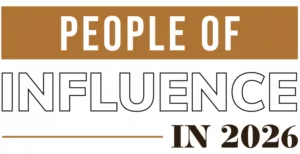Nonprofit Big Table cares for hospitality industry
Nonprofit gains support from businesses here to aid restaurant employees in need

Kevin Finch, a longtime Northwest food writer here, says Big Table, the Spokane Valley nonprofit he launched four years ago, is tapping into a growing number of Inland Northwest businesses to help restaurant and hospitality workers who need community support.
Big Table's mission is to help industry workers who are referred to them due to a struggle, perhaps from a financial burden or housing and car troubles.
Sometimes, the nonprofit fulfills dreams, such as paying for a veteran restaurant worker here to visit family in El Salvador, where he'd left decades ago.
Other times, someone needs help with major health or dental costs, Finch says, as a majority of industry workers don't have health benefits. He says restaurant workers make up the largest single U.S. employment group in typically low-wage jobs, and that group has a high rate of drug and alcohol abuse.
"The real heart of what we do is caring for the folks who are behind the scenes," says Finch, who formerly was pastor at First Presbyterian Church downtown for nine years. "We're caring for people in this industry, the folks in this category who really do kind of live in the margin—financially, certainly, and also because they work when the rest of us don't. It can be very hard."
He adds, "They work nights, weekends, holidays, and often on changing schedules."
Big Table has found a way to identify the industry's workers who Finch says are normally unseen behind a smile at the counter or in a back kitchen, by inviting people employed in food services to be served at its "Big Table" four times a year. Finch says 48 people sit at a 42-foot-long table for a multicourse gourmet meal, prepared by different Inland Northwest chefs.
Workers in the food-services industry—mainly waitresses, cooks, and dishwashers, but also restaurant owners—enjoy the meal free of charge. Community volunteers serve the dinners, and they sometimes are employees of Spokane businesses that sponsor the meals, Finch says, including one recently paid for and served by the Moloney O'Neill insurance- and employee-benefits brokerage.
At the end of the dinners, Finch describes Big Table's mission and asks guests to write down the names of anyone they know of in the industry who needs support.
Finch, who now only writes occasionally about food, works full time as the nonprofit's director. Big Table also employs a full-time program director, and Finch says this summer he hired two part-time employees, for a total staff of four. He says the nonprofit plans to launch a second office in Seattle by the end of next year, which would require two additional staff members there.
Today, Big Table receives major donor support from Northern Quest Resort & Casino, on the West Plains, and Sysco Spokane Inc., in Post Falls, which distributes food products across Eastern Washington and North Idaho to restaurants, hotels, hospitals, schools, caterers, and others.
Spokane Valley-based Lydig Construction Inc. donates space for the nonprofit's operations and for its employees to work at Lydig's office here, located at 11001 E. Montgomery Drive.
Finch says the list of other businesses here that support Big Table is lengthy, but some of them include Lloyd Industries Inc., a Spokane-based maker of cooking pans; The CashLINQ Group, a Spokane provider of electronic merchant services; Spokane Produce Inc.; Young's Market Co.; Food Services of America; Charlie's Produce; and a number of restaurants.
"Virtually every restaurant in town, or a lot of them, have hosted dinners, or provided food and gifts," he says. "What we're finding is more and more, as we're caring for people in this industry, we're connecting with people who work in the industry."
Finch says that while writing food articles and being a restaurant critic since 2001, he befriended many restaurant and hospitality workers and learned more about the industry. He wrote articles for such publications as Spokane-Coeur d'Alene Living magazine and The Pacific Northwest Inlander. He left his position as pastor at First Presbyterian Church, at 318 S. Cedar, in 2008 to launch Big Table.
"I ended up getting to know folks in the restaurant and hospitality industry and realized it was not only large, but one of the most challenging I'd ever come across as a pastor," Finch says. "It is an incredibly tough industry. It's hard on relationships because of the hours and stress."
The National Restaurant Association says 13 million people in the U.S. work in the food service and bar industry. In Spokane County, the food services-hospitality industry employs about 16,400 people, the Washington state Employment Security Department says.
Because of the industry's low barriers to enter the workforce, it tends to be a catch basin for a vulnerable and sometimes isolated portion of the population, including single parents, teens, immigrants, and some with criminal records, Finch says.
"When I started to look around who in the country might be helping people in this industry, there wasn't a single nonprofit," he says. "I couldn't figure out why. It might be that, if you walk into a restaurant, the people are going to have a smile on their faces if they want to keep their jobs."
One recent example of Big Table's support helped a Frank's Diner cook. The nonprofit partnered with two Spokane-area dental practitioners to fit the cook with a partial denture, because four of his top front teeth were missing, says Jill Lemon, Big Table's program director.
"The cooks at Frank's Diner are expected to talk to the guests when they come in, and he felt self-conscious," Lemon says.
Finch says the owners of Frank's Diner referred the cook's need to Big Table, and that the amount of support in these types of cases varies, depending on if care providers donate some services in kind.
"In some of these cases, professionals donate services completely, and in some cases, we help cover the costs," Finch adds. "It might be $5,000 to $6,000, and we share that cost."'
While the nonprofit sometimes provides direct donations, Big Table also will help connect people to other nonprofits and community groups for services when it makes sense, Finch says.
He says Big Table's annual budget was at about $183,000 last year, compared with $110,000 the year before. "I think we're on target to be at about $250,000 this year," Finch says. "Some of that is increase for staff, but we've been able to really ramp up the care we provide."
He says another recent example included providing a car to a single mom whose previous vehicle wouldn't operate in reverse and had a dysfunctional convertible cover. The nonprofit also might support someone by helping toward some expenses to move into an apartment, he says.
Jonathan Sweatt, co-owner of Downriver Grill and Flying Goat eateries in northwest Spokane, says Big Table helped find people to "adopt" one of their waitresses who was about to have a baby.
"Big Table had a group who adopted her and brought in all kind of gifts for her as a new mother," says Sweatt, who also has served as a chef for one of the Big Table dinners. "They came in and surprised her while she was working, and brought baby clothes, diapers, and everything you'd need when you come home from the hospital."
In addition to developing industry relationships, he says the nonprofit also fills a gap here.
"I feel there's a huge need out there, and they help fill that need," Sweatt says. "We've been able to reach out to help people during Christmas. Big Table sends out a newsletter about families that have needs. It was a ton of fun for my partners and I to go out and buy gifts for a family."
Kevin Pribilsky, Sysco Spokane's president, says the business has supported Big Table for about three years. Sysco supplies products and services to help restaurants and food service operations succeed, he adds, and working with the nonprofit is a natural fit because it serves the same people.
"There are some things we can't directly help our customers with that directly impact their businesses, and one would be the well-being of their employees, but that's a big part of their success," Pribilsky says. "So that's where Big Table comes in."
He adds, "They have a mechanism and expertise in place to help people who have fallen through the cracks, for making a meaningful difference in the lives of people in our industry. We're in unique position to help them in a number of ways, with food donations, culinary support at their dinners and, of course, monetary support."
Traci Rennaker, Lloyd Industries general manager and vice president, says that helping the restaurant industry needs to include support for restaurant workers. The manufacturer here has lines of cooking pans it sells directly to restaurants, she says, as well as cooking pans it sells to consumers.
"We support Big Table for what it's all about, helping restaurant workers who get overlooked, who don't get health insurance, who don't have options for retirement," she says.
Finch, who describes the nonprofit as building community around a table, says he expects Big Table eventually to have offices in other Pacific Northwest cities, and at a future time, nationally. He credits many business leaders here who helped him create a strategic business plan for the nonprofit.
"There's a huge amount of need that's right in front of us almost on a daily basis, but you don't realize it because they have smiles on their faces," Finch says.
Related Articles



_web.webp?t=1764835652)
